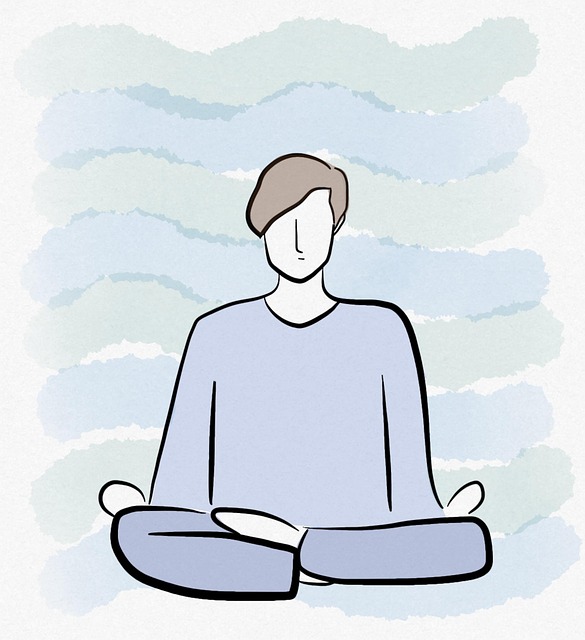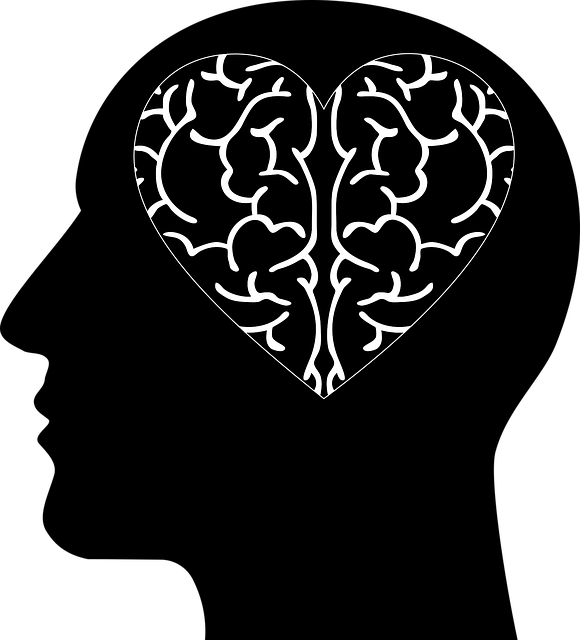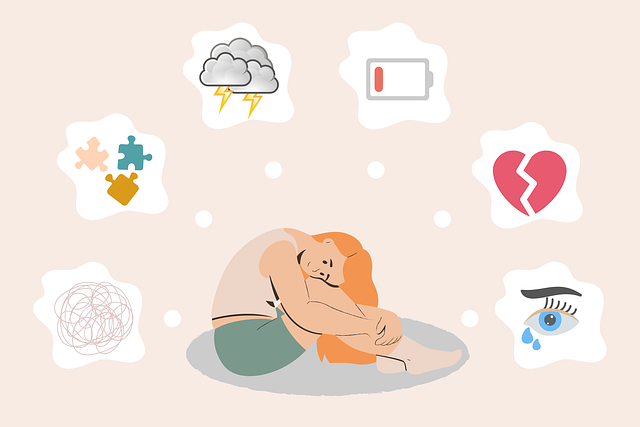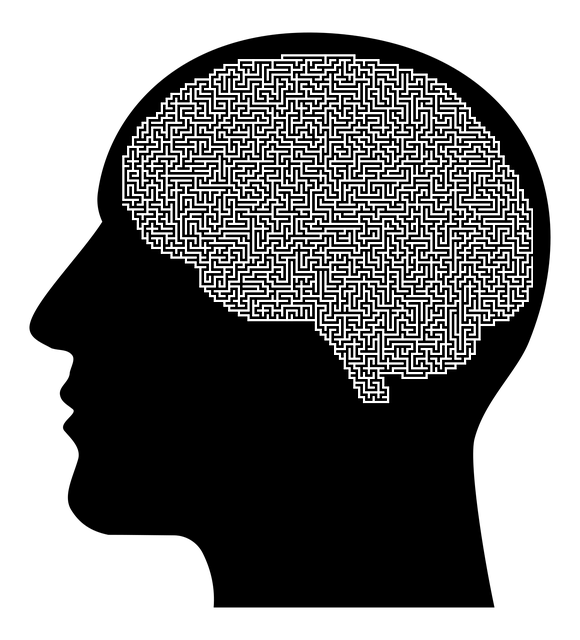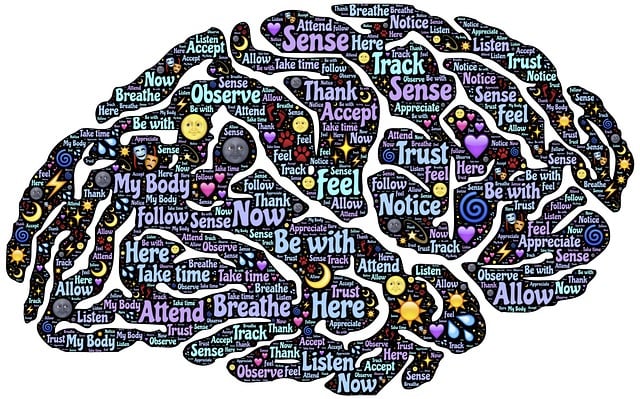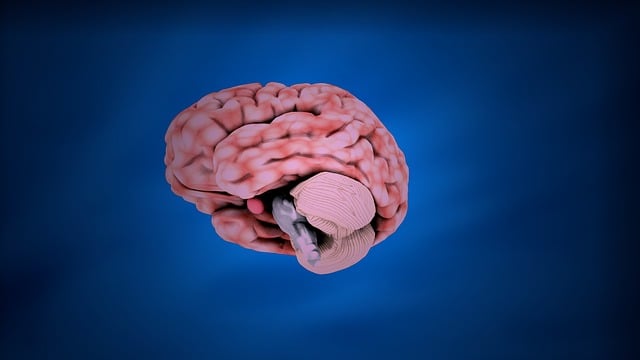Anxiety, a common stressor, becomes debilitating when persistent. Denver Trauma Therapy (DTT) offers a comprehensive approach to manage anxiety by identifying triggers, employing evidence-based techniques like CBT and EMDR, and promoting self-care practices. DTT's holistic model combines mindfulness, journaling, and personalized sessions to address root causes, reduce symptoms, and build resilience. Lifestyle changes, strong support systems, and community outreach further enhance their commitment to long-term anxiety relief.
Anxiety is a common challenge, but managing it effectively can lead to a calmer, more fulfilling life. This comprehensive guide explores various techniques to tackle anxiety head-on. We delve into understanding anxiety’s nuances, recognizing signs and triggers, and discussing innovative approaches like Denver Trauma Therapy for holistic healing. Additionally, we uncover evidence-based methods such as cognitive behavioral therapy (CBT) and highlight the significance of lifestyle adjustments and support systems in long-term anxiety relief.
- Understanding Anxiety: Recognizing Signs and Triggers
- Denver Trauma Therapy: A Holistic Approach to Overcoming Anxiety
- Cognitive Behavioral Techniques for Effective Anxiety Management
- Lifestyle Changes and Support Systems for Long-Term Anxiety Relief
Understanding Anxiety: Recognizing Signs and Triggers

Anxiety is a natural response to stress, but when it becomes overwhelming and persistent, it can significantly impact daily life. Recognizing the signs and triggers of anxiety is the first step towards effective management. In Denver Trauma Therapy, professionals often emphasize the importance of identifying personal anxiety triggers, which can range from specific situations or environments to certain thoughts and memories. By understanding these triggers, individuals can develop personalized strategies to cope.
Self-care practices play a crucial role in mood management and mental wellness. Techniques such as mindfulness meditation, deep breathing exercises, and engaging in enjoyable activities can help reduce anxiety symptoms. Additionally, keeping a journal to track thoughts and feelings can offer valuable insights into one’s anxiety patterns. Identifying these triggers and implementing coping mechanisms is a powerful tool for navigating and managing anxiety effectively.
Denver Trauma Therapy: A Holistic Approach to Overcoming Anxiety

Denver Trauma Therapy offers a holistic approach to overcoming anxiety, focusing on the interconnectedness of mind, body, and spirit. This innovative treatment model acknowledges that anxiety often arises from past traumatic experiences or deep-rooted emotional patterns. By combining evidence-based therapeutic techniques with mindfulness practices, Denver Trauma Therapy helps individuals process and release the underlying causes of their anxiety, fostering a sense of calm and empowerment.
Through personalized sessions, mental health professionals employ various tools such as cognitive behavioral therapy (CBT), eye movement desensitization and reprocessing (EMDR), and stress management techniques tailored to each client’s unique needs. The comprehensive approach includes not just addressing symptoms but also boosting confidence in managing anxiety triggers long-term. Additionally, Denver Trauma Therapy emphasizes the importance of community outreach programs to increase mental health literacy, conduct risk assessments for vulnerable populations, and provide accessible resources, ultimately contributing to a more supportive and resilient community.
Cognitive Behavioral Techniques for Effective Anxiety Management

Cognitive Behavioral Techniques (CBT) have proven to be highly effective tools for anxiety management. This approach focuses on identifying and challenging negative thought patterns that contribute to anxious feelings. By modifying one’s thinking, CBT helps individuals gain a more realistic perspective and reduce the intensity of their anxiety responses. For instance, in Denver Trauma Therapy, CBT is often utilized to help clients navigate and overcome traumatic experiences that can lead to chronic anxiety.
Through various exercises, such as journaling and mindfulness practices, CBT encourages the development of emotional intelligence and better mood management skills. By fostering positive thinking and empowering individuals to recognize unhelpful cognitive distortions, these techniques offer long-lasting solutions for managing anxiety symptoms. This method not only provides immediate relief but also equips people with coping strategies they can use in any situation.
Lifestyle Changes and Support Systems for Long-Term Anxiety Relief

For long-term anxiety relief, lifestyle changes and a robust support system are pivotal. Engaging in regular physical activity, maintaining a balanced diet, and prioritizing sufficient sleep can significantly mitigate anxiety symptoms. These holistic approaches not only enhance overall well-being but also empower individuals to better manage stress.
Building and leveraging support systems, such as those offered by Denver Trauma Therapy, is equally crucial. Sharing experiences with understanding friends or family members can foster empathy building strategies and provide a sense of belonging. Moreover, developing a self-care routine that incorporates activities promoting mental health and mood management can create a buffer against anxiety triggers. By combining these techniques, individuals can cultivate resilience and achieve lasting calm in their daily lives.
In addressing anxiety management, understanding the nuances of both personal triggers and holistic treatment approaches is key. This article has explored various techniques from cognitive behavioral therapies to lifestyle changes, emphasizing the importance of a multifaceted strategy for long-term relief. For many, Denver Trauma Therapy offers a promising path to overcoming anxiety by providing a deep, immersive approach that targets the root causes. Ultimately, combining these strategies with supportive systems allows individuals to gain control over their mental health and cultivate lasting well-being.

